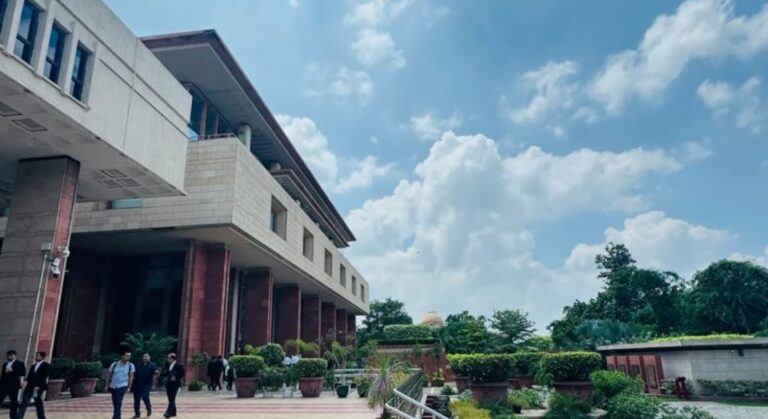The Delhi High Court has recently ruled that taxpayers disputing GST demand orders must seek relief through the statutory appellate process rather than filing writ petitions. In a case involving Rama Departmental Store, the Court emphasized that when a proper mechanism for appeal exists under the GST law, the High Court will not exercise writ jurisdiction. However, the Court also granted limited relief by allowing the petitioner to file an appeal before the Appellate Authority without being barred by limitation.
Case Background
The matter was brought before the court by Rama Departmental Store, which challenged an order dated 23 April 2024 passed by the tax officer. Alongside this, the petitioner also questioned the validity of two notifications:
- Notification No. 56/2023 – Central Tax, dated 28 December 2023
- Notification No. 56/2023 – State Tax, dated 11 July 2024
The petitioner argued that the order was non-speaking and failed to consider its reply filed against the show cause notice dated 12 December 2023.
Observations of the Delhi High Court
A bench comprising Justice Prathiba M. Singh and Justice Shail Jain observed that:
- The petitioner had filed a reply to the show cause notice.
- A personal hearing was also provided by the tax authorities.
- The order was not ex parte and was passed after considering both the reply and the hearing.
Therefore, the High Court refused to interfere under writ jurisdiction, stating that the statutory appellate remedy should be pursued.
Supreme Court Already Seized of Related Issue
It is noteworthy that the validity of the GST notifications in question is already under consideration before the Supreme Court of India (SLP No. 4240/2025). Hence, the Delhi High Court refrained from examining that aspect.
Relief Granted to the Petitioner
While dismissing the writ petition, the Court provided relief by allowing the petitioner to:
- File an appeal before the Appellate Authority on or before 30 September 2025.
- The appeal will not be rejected on grounds of delay and will be decided on merits.
- The petitioner will be required to make the mandatory pre-deposit.
- The GST portal will be made accessible within one week for downloading relevant documents.
Key Takeaway
The ruling reinforces the principle that High Courts will not entertain writ petitions in GST demand disputes when a statutory appellate mechanism exists. Taxpayers aggrieved by GST orders must approach the Appellate Authority for redressal.
